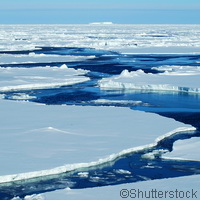EU-funded project champions sustainable development for the Arctic
A new European project that is set to chart a course for sustainable development in the Arctic over the next 50 years is now well under way. ACCESS ('Arctic climate change, economy and society'), which received a EUR 10 978 468 funding boost as part of the 'Cooperation' Theme of the EU's Seventh Framework Programme (FP7), aims to investigate the impact of human activities on the Arctic ecosystem - an impact expected to intensify as Arctic ice partially melts. The project brings together researchers from 27 research institutes across nine European countries as well as Russia. As Arctic sea ice melts, economic opportunities are created: the opening up of new shipping routes, for instance, that can save time and money. However, exploiting these opportunities in the Arctic will be accompanied by an increase in vehicular traffic, the flow of people, and the level of activity in general. This is why it is imperative that the impact of climate change and the resulting activities are measured. The overall objective of the project is to analyse how climate change and this resulting increase in activity will impact the Arctic region socially, economically and politically, as well as to examine how these changes will affect ecosystems. The aim is to study the impact of human activity in five areas: the environment in the context of climate change; marine transportation and tourism; fisheries; resource extraction; and governance and sustainable development. One of the project partners, the Universitat Politècnica de Catalunya (UPC) in Spain is using acoustic sensors and pioneering technology to analyse the impact of noise pollution on marine animals in the Arctic Ocean. The team will be monitoring sounds of anthropogenic origin and those produced by marine animals, and analysing how one affects the other. Artificial sounds (i.e. as a result of human activity) in the marine environment constitute one of the most serious threats to the balance of the oceans. The aim is to analyse how marine animals react to and are affected by the noise associated with increased activity during the melt season. The researchers will focus specifically on cetaceans, as these mammals depend almost exclusively on acoustic information for their survival and are regarded as ideal bioindicators. The LAB team will map the population of marine mammals in the zone. They will thus be able to monitor these animals and analyse how they are affected by the higher noise levels generated by new human activities such as oil exploration, traffic of commercial and tourist vessels, and fishing. In previous studies, LAB researchers have shown that cetaceans and other marine animals such as cephalopods can suffer serious hearing damage as a result of continual exposure to low-frequency sounds. These species rely on their sense of hearing to navigate, hunt, interact socially and engage in other activities. Consequently, the life rhythm of marine animals and the balance of the food chain could be upset by the changes taking place in the Arctic. Researchers will then study the mammals and their feeding habits, social interactions and migratory movements, and observe any changes in these behaviours. Information obtained by tracking the animals will allow the investigators to determine whether changes are related to the appearance of anthropogenic sounds in their ecosystems, and to determine the extent of any such effects observed. As well as focusing on the conservation of marine ecosystems, the ACCESS project partners also want to look at the sustainable development of offshore industries in the Arctic.For more information, please visit:Universitat Politècnica de Catalunya (UPC):http://www.upc.edu/?set_language=en
Countries
Spain



